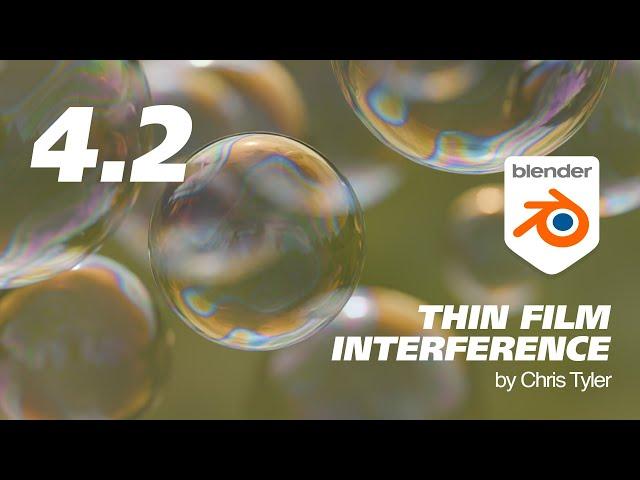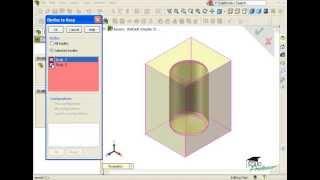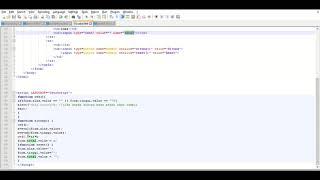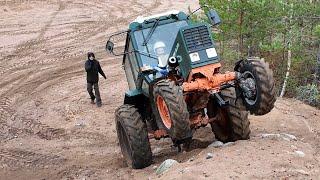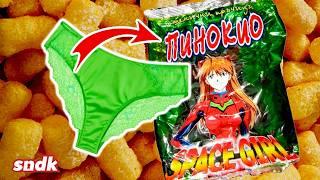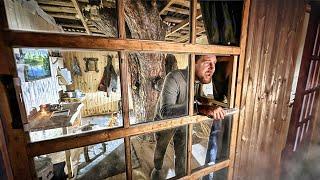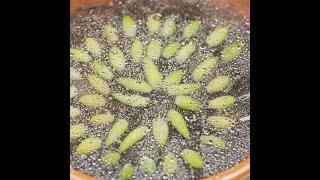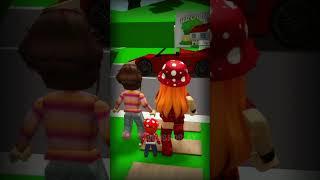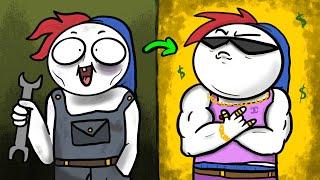Комментарии:

Thank you for the great tutorial.
Ответить
Man! Your visual presentation are spot-on. I appreciate the efforts behind it
Ответить
Very clever implementation for interference color on anodized metal! Thanks for the detailed tutorial. Should work great for rendering products with iridescence or hologram film qualities. I'm not sure if thin-film can approximate it but I do hope Blender grants us glass dispersion (plus dispersion caustics) sooner or later.
Ответить
Great tutorial, i was a little confused about the thin film not working on metallic surfaces when 4.2 was released but like you i figured out that you can up the IOR to simulate a metallic surface although not physically accurate. hope they update it to work with metallic in the future.
Ответить
My Grandma always used to say, "If you want to learn about thin film interference, watch Christopher 3D." Wise words. Bless her soul and bless Christopher 3D 🙌
Ответить
Handy and instructive! Thank you!! 🙏🏻🙏🏻🙏🏻
Ответить
Oooo, i remember doing this in Luxrender 12 years ago, i was so happy to see those bubbles when the render finally finished half a day later
Ответить
Consistently the best Blender tutorials around. Thank you.
Ответить
thank you daddy
Ответить
Your content is amazing, Where can I learn this sort of material more in depth? I.e. to really understand the physics and mathematics behind all components of the BSDF?
Ответить
Thanks. These videos take away most of the guess work when working with Blender parameters.
Ответить
The metallic cheat is rather interesting, I was able to model anodized titanium (IOR 2.16) using this method. Really neat!
Ответить
This is more than a Blender tutorial. Thank you for the masterclass!
Ответить
Fantastic tutorial again, thanks a lot Chris ! Especially the last part on metalic equivalent with IOR on very high values was something that I was searching for a long time.👍
On the animation part of the tutorial, you should use the 4d parameter of the noise texture to get the W parameter that is perfect for an evolving effect kind of noise. Because 0 to 1 animation in distortion will result on a very different noise from start to finish.

That was an amazing video!
Ответить
It seems that it don't work on Eevee nex. Or you have the answer for it:)?
Ответить
Amazing tutorial, thank you!
Ответить
so... this is the closest thing in nature we have to z-fighting
Ответить
I came here to learn about the film interference feature and learn I did! Great video - no blabla but everything that matters.
Ответить
Merci pour ce tuto extraordinaire, j'ai beaucoup appris.
Ответить
Can there even be "thin film interference" in metals? Metal or conductive is not mentioned on wiki.
Logically speaking, reflections in metals happens within a few atoms of thickness, way thinner than the nano scale that applies here.
I'm not sure. Might be a useful fake approach for heat treatment and such, but I don't see it as a valid approach to anodized metals.
For previewing number values in shaders, switch to raw view transform with none as the look. Avoids the applied gamma curve and dark/bright are more evenly distributed.
Test this by mapping a gradient 0-1 snap 0.025 to a rectangle. With raw/none, you can see the variations also in the high end.
For noise and its settings, you might want to make sure you're not clipping beyond the desired 0-1 range. Simple <0 and >1 check does the trick.

原理讲的很清楚,理解的更深刻了
Ответить
When you use the Node Wrangler addon it is not necessary to press Shift+W and choose the texture setup from the menu. Just press Ctrl+T when the Background node is selected amd the texture setup will be added automatically. And it is not necessary to switch to Material Preview mode if you want to preview a noise texture... this works in rendered view as well, and since directly connecting it to the Material Output is working like an Emission shader, there is no noise previewing even at low samples.
Ответить
This is incredible. Thank you so much Chris
Ответить
Has anyone been able to recreate the beetle carapace? Is the final tutorial about metal with thin film interference the best starting point?
Ответить
But why is it an own Slot on the BSDF? Is it as important as emission or roughness? I am quite confused
Ответить
Kind of random, but that HDRI is the GOAT. On PolyHaven, all of them have generic names based on the location except for that one. "THE SKY IS ON FIRE!" The guy who made it clearly knew it was 'lit', both literally and figuratively. Noticed it made the cut for some paid addons too, like Materialiq.
Ответить
Super interesting and useful, thanks for making it understandable for us muggles!
Ответить
wonderful
Ответить